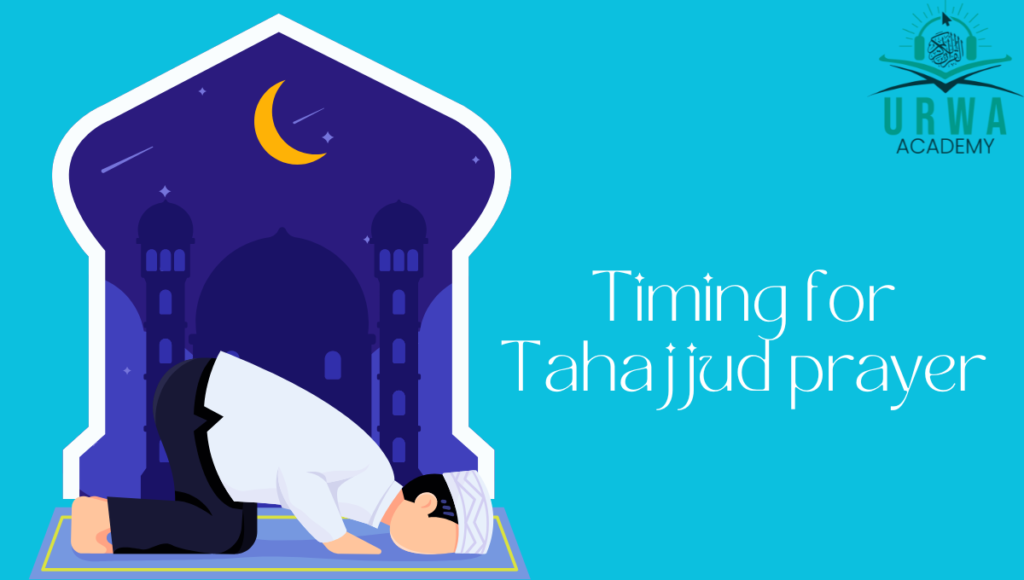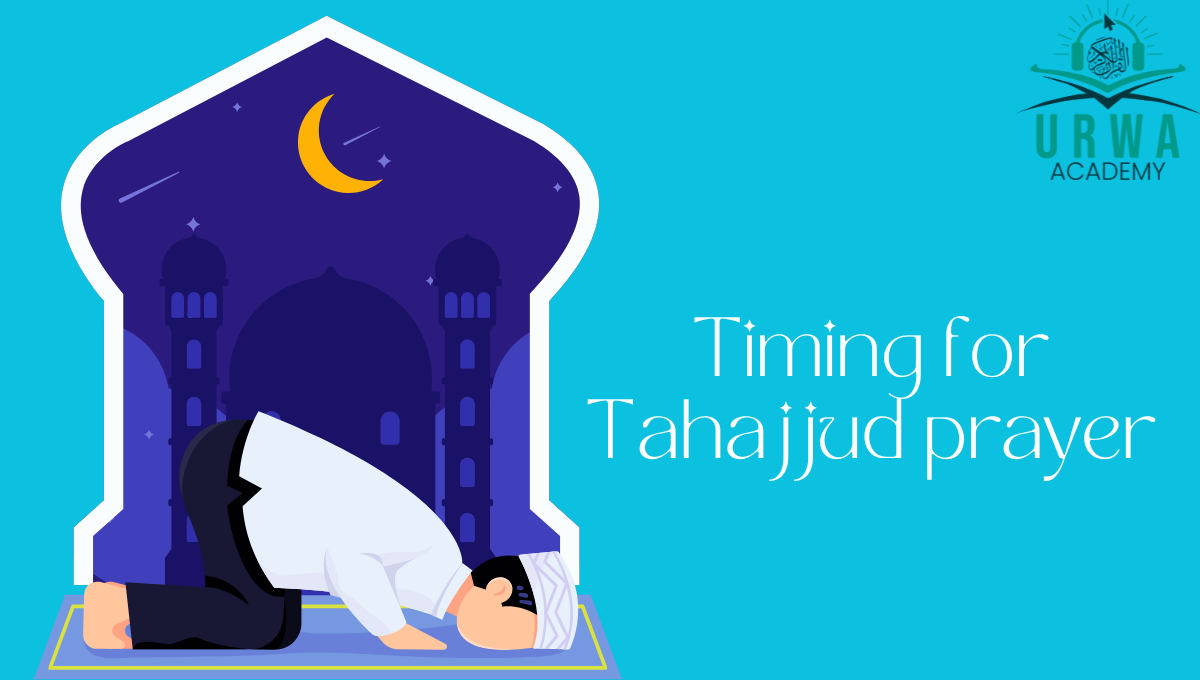In Islam, Tahajjud Namaz is one of the most rewarding worship. The time for this prayer is in the last part of the night. This prayer takes you closer to Allah and also gives you inner peace. In all over the world, many Muslims pray Tahajjud Salaah to get blessings, forgiveness, and guidance.
Usually, this most beneficial prayer can make your spiritual connection stronger with Allah, and you feel well after this prayer because this prayer gives peace to you. With the help of understanding its benefits and the right way to perform it, you can add this prayer to your daily routine.
This article is going to be very informative for those who want to know the benefits of Tahajjud namaz. Here, we provide you with the information about how to pray Tahajjud and also tell you about how many rakats are in the Tahajjud Namaz. This guide will help you understand and perform Tahajjud correctly.
How to Pray Tahajjud?
Tahajjud Namaz is very valuable in Islam because of the benefits that you get from it, like it can make your faith stronger and provide you inner peace. The perfect time for this prayer is in the last third of night. No matter whether you are depressed or have any other tension, you feel fully relaxed after this prayer. In the below section, we give you the details about the correct timing, method, and number of rakats for performing this powerful prayer.
How Many Rakats in Tahajjud?
A lot of people get confused about how many rakats are in Tahajjud. If you are also one of them, don’t get confused because the Prophet Muhammad (SAW) did not specify a fixed number of rakats, allowing flexibility in how much one prays.
Minimum and maximum rakats explained:
- Minimum: 2 rakats (The shortest but still valuable form of Tahajjud).
- Recommended: 8 rakats (As practiced by the Prophet).
- Maximum: There is no limit; you can pray as many as your heart desires.
Optimal Timing for Tahajjud Salaah

Usually, the perfect time for performing Tahajjud is in the last third of the night because this is the time when Allah’s mercy and blessings are believed to be at their peak. At this time, you can make a stronger spiritual connection with Allah and make your heart peaceful. But in this case, if you are not able to perform it at that time, then don’t worry because you can perform it any time after Isha and before Fajr.
Best times to perform the prayer:
- After Isha: You can pray Tahajjud anytime after completing the Isha prayer.
- Last third of the night: This is the most rewarding time for Tahajjud. For example, if Fajr is at 6:00 AM, the last third would be from 3:00 AM to 6:00 AM.
- Before Fajr: If you wake up just before Fajr, you can quickly perform at least 2 rakats to gain the blessings of Tahajjud.
Step-by-Step Guide to Performing
The process for performing Tahajjud Salaah is easy and simple. You just have to know the right way to get the greatest reward. The following points show you the detailed information about how you can pray it:
- Making the intention (Niyyah):
The first thing before starting this prayer is to have a pure intention (niyyah) to perform Tahajjud solely for Allah’s pleasure. You can just make niyyah in your heart. - Performing the Rakats:
- Start by praying 2 rakats (the minimum).
- Recite Surah Al-Fatiha in every rakah, followed by another surah.
- You have to start praying in sets, like first praying two rakats and then continuing as much as you wish. The Prophet Muhammad used to pray 8 rakats.
- Recitations and supplications:
- When you are in sujood, you have to make heartfelt duas because this is the time when duas are mostly accepted.
- You can recite any duas from the Quran; otherwise, you can also make personal duas, like asking Allah for guidance, forgiveness, and success.
- Prolong your ruku and sujood to deeply connect with Allah.
Benefits of Tahajjud
Praying Tahajjud is very beneficial for you in every aspect of your life because this is the way to get spiritual rewards and give peace to yourself. In the below section, we provide you with the information about the benefits you get by performing Tahajjud regularly.
Spiritual Benefits
When everyone is sleeping, and you wake up to perform Tahajjud, these movements take you closer to Allah and also make your faith stronger. The following are the spiritual benefits you get from Tahajjud:
- Increased closeness to Allah: Tahajjud is a time when Allah descends to the lowest heaven and accepts prayers.
- Sins are forgiven: Adding Tahajjud to your regular routine is the way to wipe away sins and bring spiritual purity.
- Elevated status in Jannah: Performing Tahajjud every night is a sign of a true believer and brings great rewards in the Hereafter.
- Prayers are accepted: The time of Tahajjud is the time when most of the duas are highly accepted, so always make duas during Tahajjud.
Emotional and Mental Benefits
In this situation, if any Muslim is stressed, then he prefers to perform Tahajjud because this can heal your soul and also relax your mind.
- Reduces stress and anxiety: When you perform Tahajjud, you can make yourself comfortable and avoid worries.
- Boosts patience and self-discipline: When you leave your bed and especially wake up for Tahajjud, this builds strong habits and self-control.
- Brings inner peace: Tahajuud makes a special connection with Allah that can totally give you peace and calm your mind.
- Improves focus and mental clarity: Making dua during Tahajjud helps clear your mind and strengthens your purpose in life.
Physical Benefits
Along with getting spiritual and emotional benefits, you can also get physical benefits when you perform Tahajjud regularly. The following are these benefits:
- Improves sleep patterns: If you have a disturbed sleep schedule, then you can make it perfect when you perform Tahajjud regularly. This way, you can improve your sleep cycle and improve rest.
- Boosts energy levels: When you start your day with prayer, this gives you a strong mind and positivity for the day ahead.
- Strengthens immunity: At night, when you do this physical movement regularly, this can improve blood circulation and overall health.
- Promotes healthy habits: Waking up early for Tahajjud encourages an early bedtime and a balanced lifestyle.
FAQs
For Tahajjud
Final Words
Tahajjud Namaz is a powerful act of worship that strengthens your connection with Allah while bringing spiritual, emotional, and physical benefits. By performing it regularly, you open doors to forgiveness, inner peace, and countless blessings. Start with just 2 rakats and build your habit over time. The rewards of Tahajjud are endless, making it a valuable addition to your daily life.

